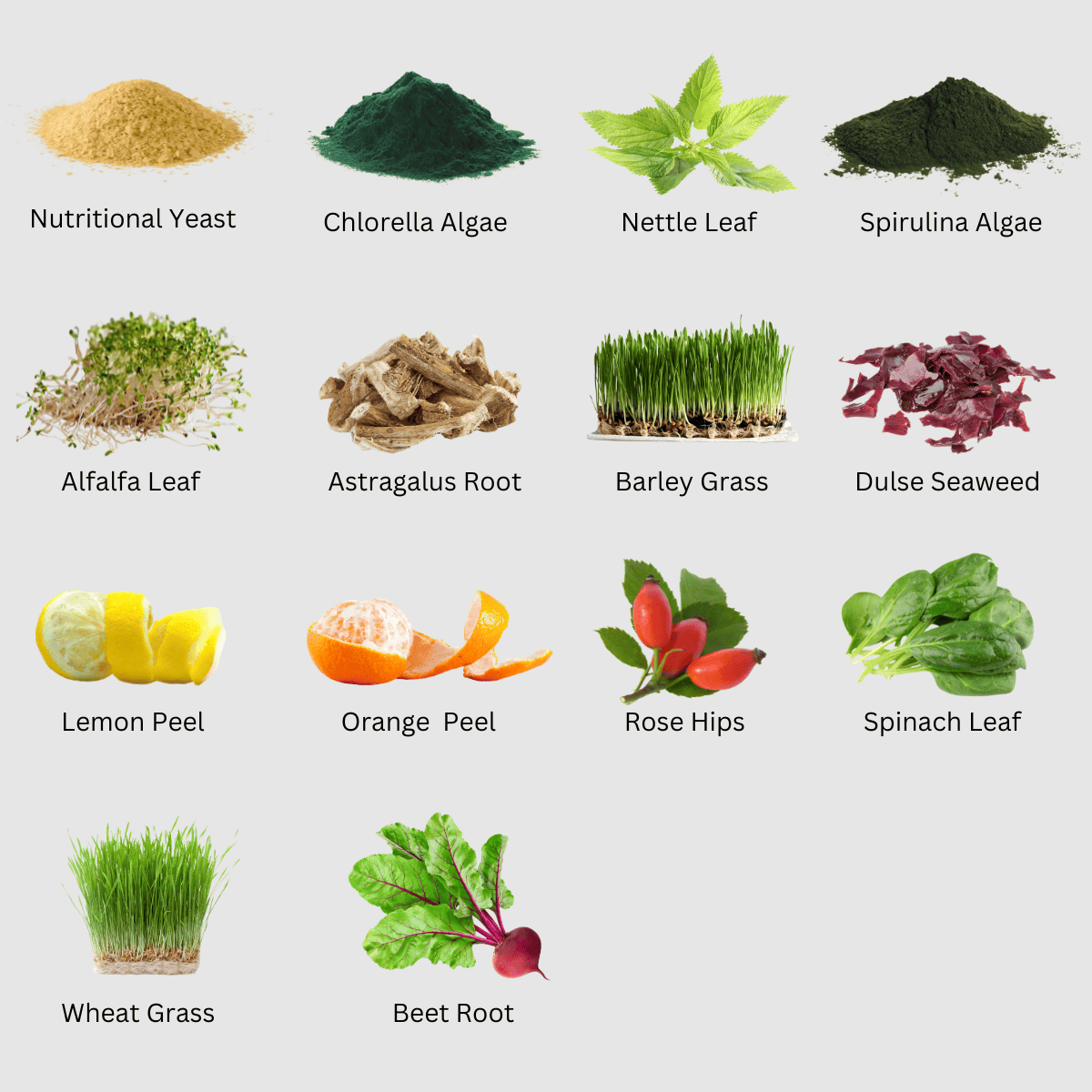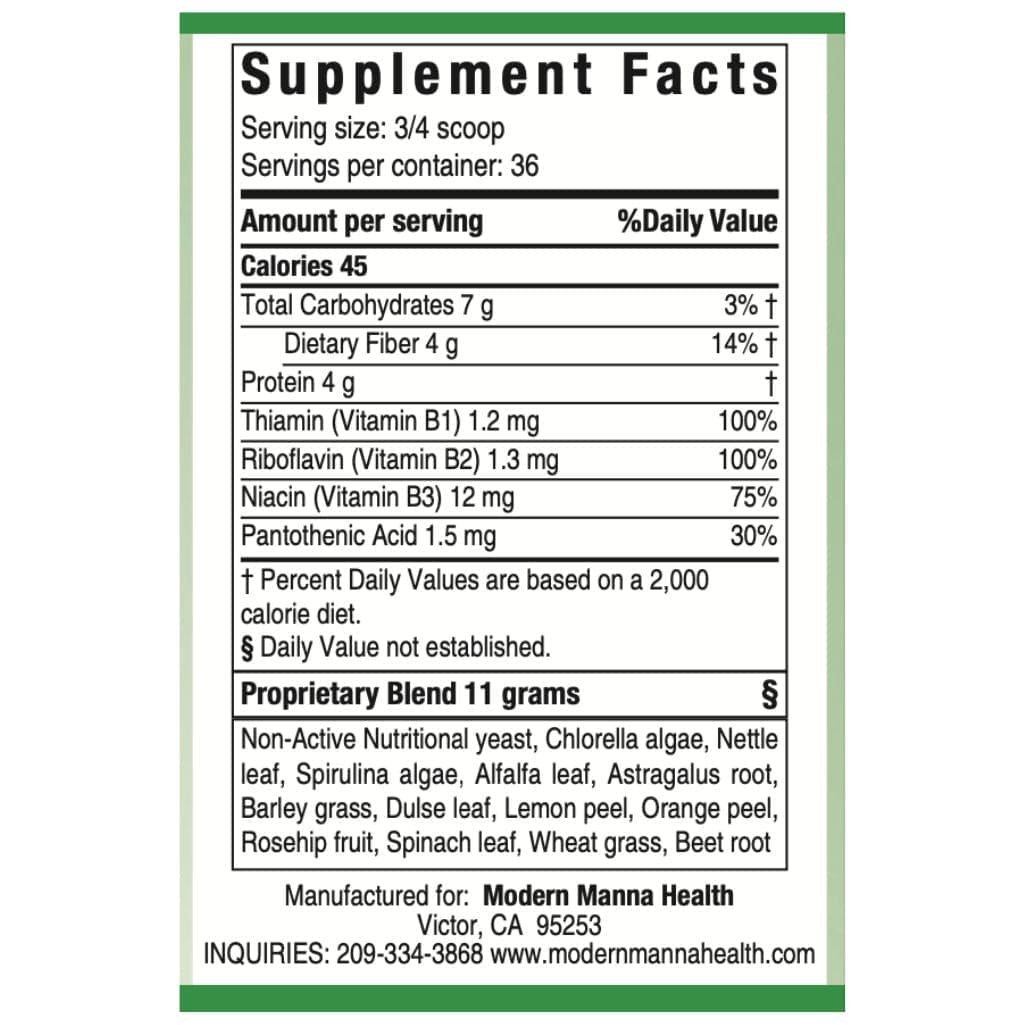
Energize Your Life with SuperManna!
Tired of feeling sluggish? SuperManna is the ultimate blend of nutrient-dense superfoods designed to naturally boost your energy levels and keep you feeling vibrant all day long.

UNMATCHED NUTRITION POWERED BY PURE, POTENT, AND RELIABLE INGREDIENTS
Natural, Lasting Energy: Enjoy vibrant energy from 14 plant-based superfoods, without the crash from caffeine or sugar.
Vital Nutrients for Optimal Health: Packed with essential vitamins, minerals, amino acids, and omega-3 fatty acids to fuel your body for long-lasting vitality.
Convenience and Simplicity: Just one scoop a day supports your immune system and helps you feel your best—effortlessly.

UNLOCK THE POWER OF SUPERMANNA
Natural Energy Support: Provides sustained energy from plant-based superfoods, without the crash of caffeine or sugar.
Enhanced Oxygen Flow: Ingredients like wheatgrass and barley grass help boost circulation, ensuring your cells get the oxygen they need for maximum energy.
Vital Nutrients for Stamina: B-vitamins, iron, and antioxidants work together to fuel your body and reduce tiredness.







